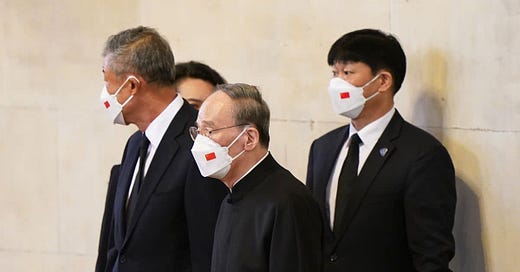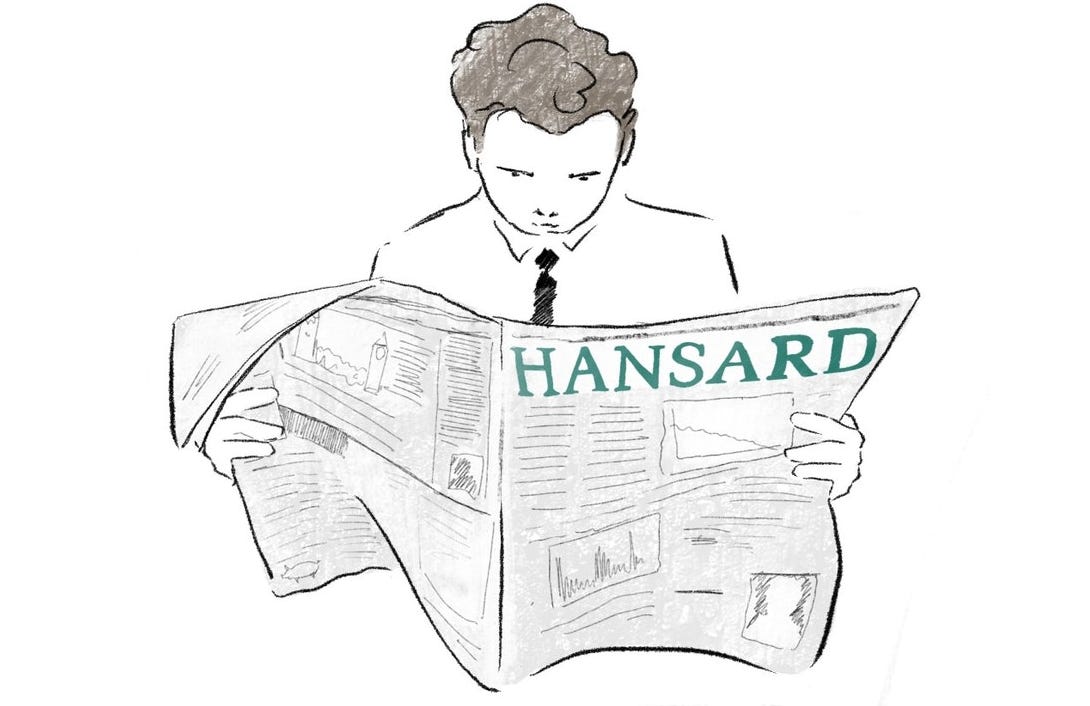PM Liz Truss at the UN, Taiwan and UK, China as an "official threat"
A Beijing to Britain briefing
Hello,
British Prime Minister Liz Truss is a proud cage rattler. After a mini-budget on Friday, praise, criticism and analysis flowed in thick and fast. Her planned economic shakeup, so-called ‘Trussonomics’, includes significant tax cuts and deregulation at a level not seen in Britain for half a century. Those against argue her plans reward the rich, and the economics supporting her deregulation plans are fantasy; those in favour argue her vision is grand, innovative and scares the establishment. In one widely shared piece, the Financial Times’ chief economics commentator Martin Wolf added that regardless of where one stands on the issue, Truss “has no mandate for the policies she wishes to pursue.”
Attracting far less analysis and objective scrutiny is a similar effort by the Prime Minister to shake up Britain’s foreign policy. Truss used the first international speech of her premiership, delivered at the United Nations, to again call on the G7 and “like-minded” countries to form economic partnerships to limit the influence of “authoritarian aggressors” - which should be read as China and Russia. Few have stopped to ask how this plays out with the majority of the world that does not want to pick a side. Simultaneously, it was briefed to the media that Truss would follow through on her campaign pledge to rewrite the UK’s guiding foreign policy document - the Integrated Review - to reclassify China as an official threat. This is a foreign policy decision with consequences that could - we don’t know yet - ripple through the decades, long after Truss leaves office. It has so far faced no real scrutiny from the opposition, and Parliament will have no meaningful say in the reclassification. Interestingly, Chinese state media reported that a day earlier the UK’s Deputy Prime Minister Thérèse Coffey told Chinese Vice-President Wang Qishan that the Truss Government "hopes to strengthen cooperation with China in trade, environmental protection, climate change and multilateral affairs." Let’s see.
“Where discussions once centred primarily on investment opportunities, they are now focussed on building supply chain resilience, the challenges of doing business, managing the risk of reputational damage and the importance of global compliance. How did China, the architect of the greatest economic growth story in history, lose its allure as an investment destination so quickly?” That’s the question at the core of a new punchy European Chamber of Commerce in China position paper. For our FTSE readers, we unpack key details, and discuss the latest Government interventions in Chinese-linked actions under the National Security and Investment Act.
That’s all to come in this week’s Briefing.
Order! Order!
Some of the more eye-catching questions and tweets from Westminster dwellers this week
Ruth Jones (Labour, Shadow Minister for Environment, Food and Rural Affairs) asked “the Secretary of State for Foreign, Commonwealth and Development Affairs, whether she is taking steps to help tackle China's growing influence in sub-Saharan Southern Africa?”
Owen Thompson (SNP, Chief Whip) asked “the Secretary of State for Foreign, Commonwealth and Development Affairs, what steps (a) she and (b) her Department is taking to raise the UN Human Rights Office's assessment of human rights concerns in Xinjiang, China with the Chinese Government.”
A quick look at how China is being discussed in Parliament
9 mentions of China/Chinese, no mention of Xi Jinping, 1 mention of Hong Kong, 2 mentions of CCP, 2 mentions of Taiwan, no mention of Tibet, no mention of Xinjiang
589 out of 650 MPs (90.6%) have a Twitter account.
3 MPs’ tweets containing the term ‘China/Chinese’, 0 on ‘Hong Kong’, 0 on ‘Tibet’, 0 on ‘Taiwan’





